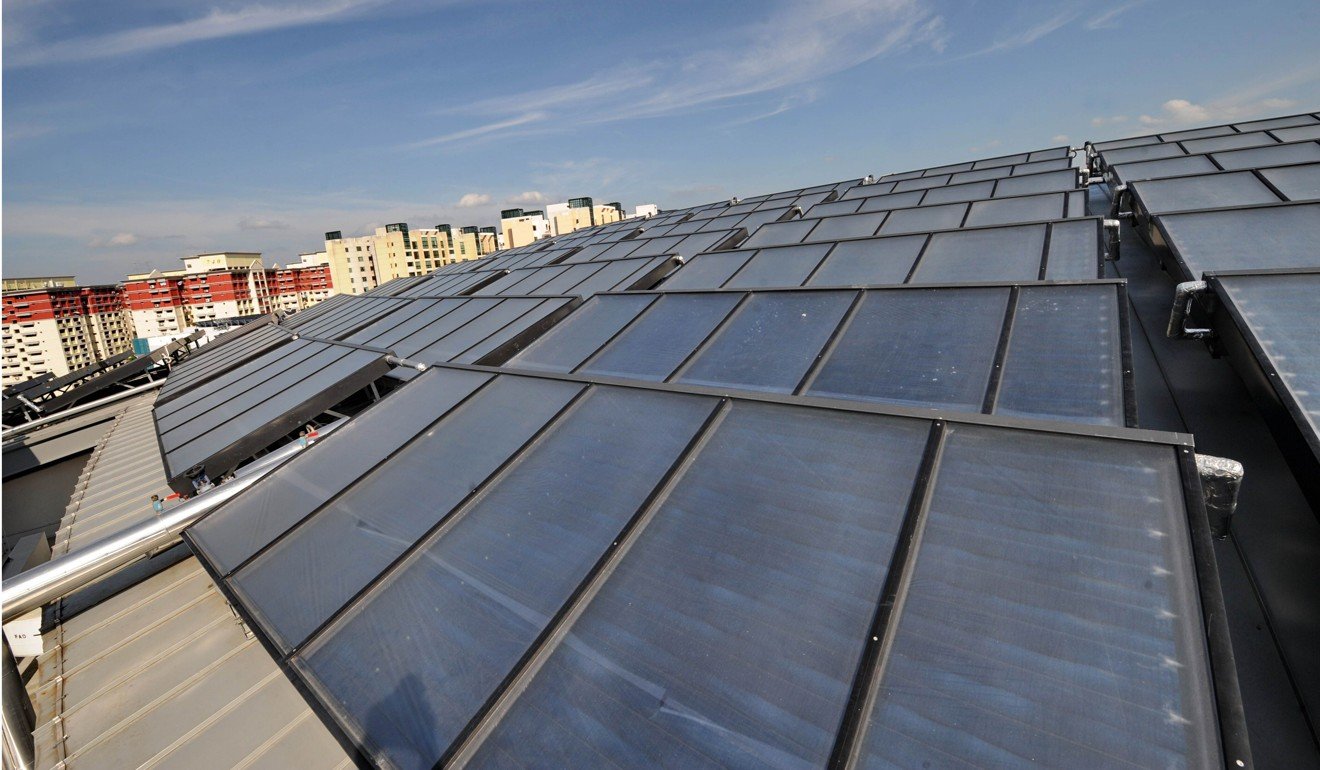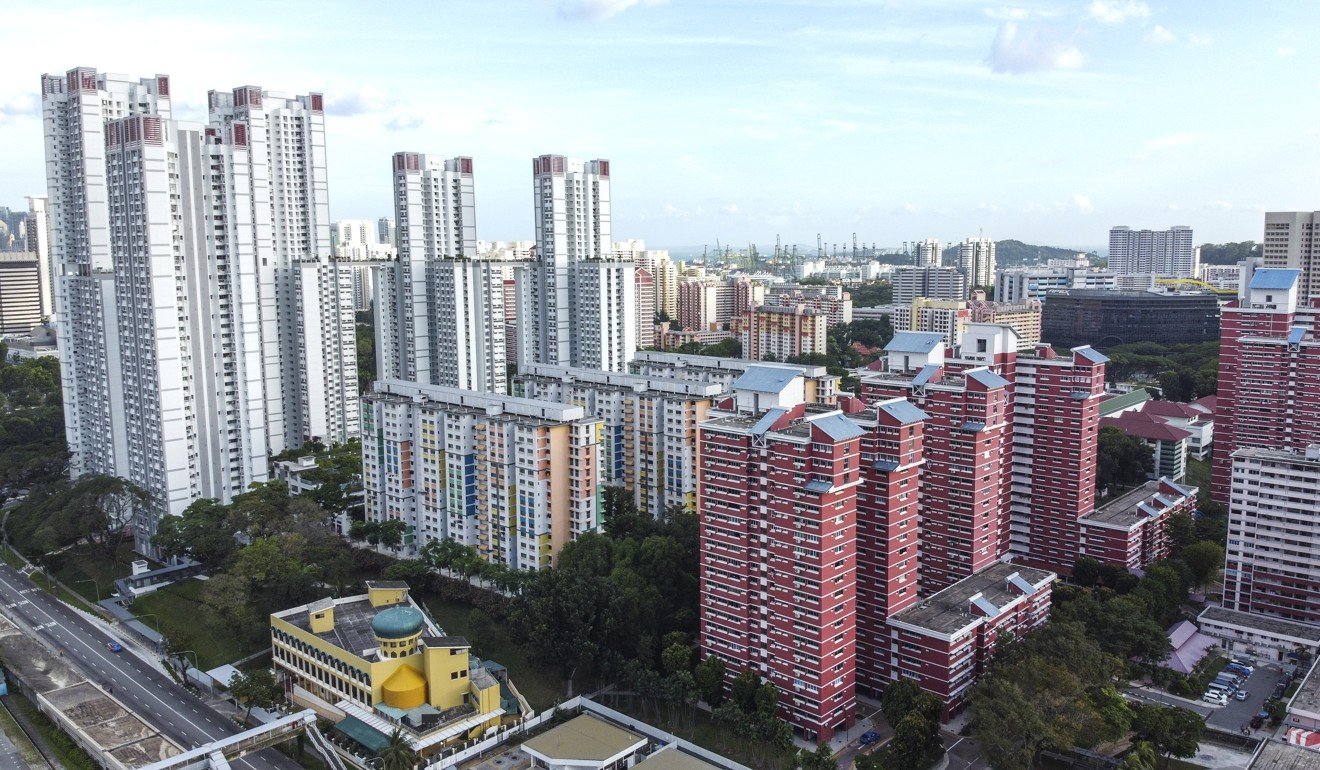Can Singapore run without fossil fuels?
Could Singapore run without fossil fuels? Possibly. The government is thinking about it because of global trends, although getting to that future quickly will disrupt the current economic structure and affect jobs.
Minister of Trade and Industry Chan Chun Sing said on Monday that the country was certainly thinking of a post fossil fuel future, but outlined Singapore’s limitations to “solving the energy puzzle”.“Life is fair,” said Chan. “In Singapore, we don’t have earthquakes, we don’t have typhoons, but that means that we’ve no geothermal we’ve no wind power. The only thing that we have is solar [power]. However, 80 per cent of the time in Singapore, the skies are overcast.”
Singapore’s focus in the last 50 years was on securing its water needs – “we learned the important lesson never to be held ransom by a sole source,” said Chan – and energy will be the focus for the next 50 years.
Chan said there were three ways the country could manage its energy needs.
First, to diversify energy sources and Singapore has done that by moving from oil and gas to liquefied natural gas “which is one of the cleanest fossil fuels”.
Second, the country is building up its solar power coverage and by the end of the year will have panels on half of its public housing flats.
Third, the country has to manage its demand for energy by designing buildings, rooms and precincts well.

Solar panels on the roof top of the United World College Southeast Asia in Singapore. The country is building up its solar power coverage and by the end of the year will have panels on half of its public housing flats. Photo: AFP
Chan, who was speaking at state-funded research centre the Institute of Policy Studies’ annual conference held at the Marina Bay Sands Convention Centre, said one-third of Singapore’s energy consumption went towards cooling residential and commercial properties. Using the conference ballroom as an example, he said: “You look at the air-conditioning for this room, we air-condition the whole place [when] we only need to air-condition 2 metres from the floor.”Chan was responding to a student in the audience who asked how Singapore was going to “confront the elephant in the room”, its large fossil fuel industry, given the country’s climate change commitments.
Singapore’s Jurong Island hosts a petroleum and oil refining industry that makes it the world’s fifth largest refinery export hub. The industry is responsible for nearly half of national greenhouse emissions, wrote Angel Hsu, environmental studies academic at Yale-NUS College.
The energy and chemicals industry contributed S$81 billion (US$60 billion) to Singapore’s total output in 2015 and is expected to create S$12.7 billion in value-add and 1,400 new jobs by 2025.Chan said Singapore may have a big petrol chemical industry but defended it as one of the most efficient and cleanest in the world. He said during discussions at the Paris Agreement, Singapore had asked where clean petrol chemicals would be produced were Singapore to halt the industry.
“They will be produced somewhere else in the world and, more likely, it will be under conditions that are perhaps more pollutive than the current conditions,” said Chan.
The Paris Agreement in 2015 aims to limit global warming to well below 2 degrees Celsius above pre-industrial levels, with the aim of limiting warming to just 1.5 degrees C. This means countries have a limited “carbon budget” for emissions. Singapore has pledged to reduce the amount of greenhouse gases emitted to achieve each dollar of gross domestic product by 36 per cent from 2005 levels by 2030.
Chan said Singapore took its carbon responsibilities seriously and it was one of the Economic Development Board’s considerations when it tried to win foreign investments.
“There are industries that may want to come into Singapore which we may not be able to even accept,” he said.

Public housing in Singapore. A third of Singapore’s energy consumption goes towards cooling residential and commercial properties. Photo: Roy Issa
One example was data centres. He said many companies would like to open data centres in the city state which has billed itself as a data hub, but those have high energy needs and would take up a lot of Singapore’s carbon budget. “Are we able to attract those? If we’re unable to attract those, what does it mean for our economy, our position as a global hub for digital services? In all such difficult decisions, we have to ask ourselves: how do we remain competitive as an economy to attract those investments, create good jobs for people, how do we fulfil our carbon budget obligations, not just for this generation but for the next generation?”
The topic of climate change came up a few times throughout the day, with former diplomat Bilahari Kausikan, who is also chairman of the Middle East Institute at the National University of Singapore, saying the government’s plan to spend S$100 billion over 100 years on climate change was an audacious one made possible only because of the ruling party’s longevity.
Another instance was when Nor Lastrina Hamid, co-founder of Singapore Youth for Climate Action, took to the stage.
She talked about how she and other youth got involved in climate issues, from volunteering with other organisations to, in 2015, forming their own outfit to find out how countries were addressing the problem through the United Nations Climate Change Conferences.
Lastrina said some youth climate groups had come together to form Green Watch, which would score how local political parties address climate issues.
“The aim really is to deepen the climate commitment during the upcoming general election,” she said. “We really want to go slowly into politics and policies, and see how we can change things at a more systemic level and at a faster rate.”
Lastrina urged the audience of 1,120, which included public servants, business leaders, academics and members of civil society groups, to band together for the larger cause of climate change.






